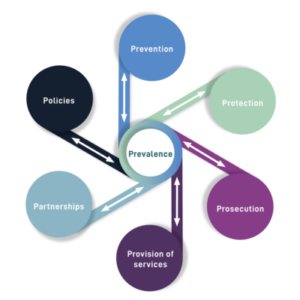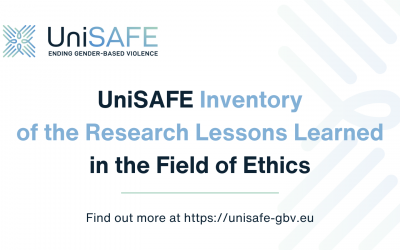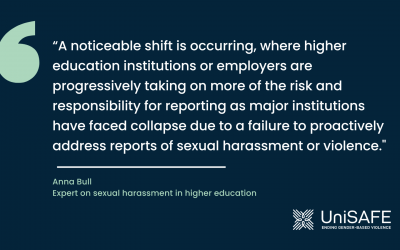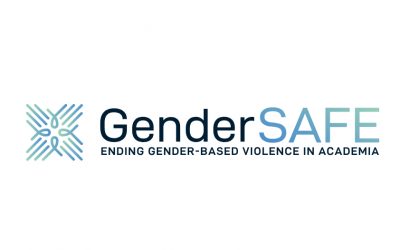UniSAFE provides reliable quantitative and qualitative data on gender-based violence (GBV), including newly emerging forms of violence, in universities and research performing organisations. A main focus of the project is to collect empirical evidence on gender-based violence in RPOs, its determinants and consequences, and conduct a comparative analysis within the 7Ps framework (how institutions measure prevalence of GBV and implement measures for preventing, protecting, prosecuting and providing services, supported by policies and partnership).

Case studies
Following the mapping of organisational level policies and measures adopted to address gender-based violence, UniSAFE has now launched the next step of its research at the organisational level: case studies. The objective is to analyse the institutional responses to GBV, the implementation process and the actors involved in it. The case studies aim to offer a comprehensive understanding of:
- the effects and consequences of the design and implementation of institutional measures and responses;
- the relationship between institutional responses and gender-based violence in research performing organisations (RPOs), their consequences for individuals, and their effectiveness;
- the facilitating and hindering factors for implementing the measures and the theory of change underpinning each one.
The core of these case studies is understanding how institutional measures are implemented by a multiplicity of actors and how they work at the individual level, focusing on the interactions, effects and consequences of each institutional response.
Cases in 15 European countries have been selected for in-depth analysis, ensuring a comprehensive coverage of the 7Ps model as well as geographical coverage. The analysis includes:
- the implementation of each measure,
- the mapping of actors intervening in the implementation process and the relations among them, and
- in-depth interviews and focus groups with responsible persons for that measure in the RPO, including professionals in first-line providing services/interacting with beneficiaries, as well as beneficiaries themselves whenever possible.
Due to resistances to recognise the existence of the problem, the structural gender inequality embedded in RPOs, and organisational complexity, institutional responses can unintentionally produce re-victimisation, failing to adequately prevent harassment or protect victims or contribute to maintain invisible gender-based violence related practices and behaviours. This is why the analysis will focus on the implementation of the institutional responses processes, the consequences, and positive and potential perverse effects.
An aggregate report will be available in November 2022. The data gathered during the case studies will be complemented by qualitative interviews with individuals at a higher risk of experiencing gender-based violence, for which our call for interviewees is still open.



